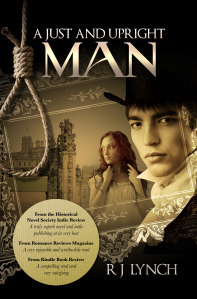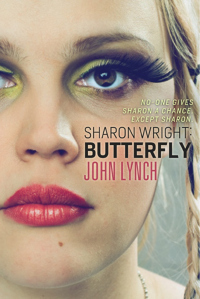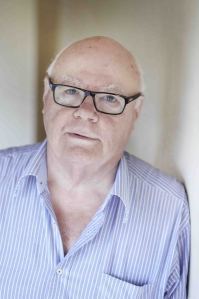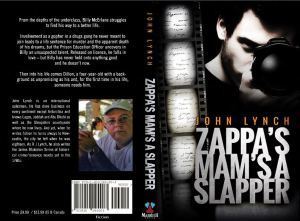R.J. Lynch's Blog, page 15
November 30, 2014
Can men write romance? Yes. We can. But there are conditions
At the Chorleywood Indie Fair on 16th November a lady asked me to tell her about my books. I did that and when I reached A Just and Upright Man I said, ‘This is an historical romance and crime book. It’s set in the north-east in the 1760s. So, you see, men can write romance.’ I meant that as a little joke and she didn’t seem to have a problem with it but one of my fellow ALLi author members who was listening to the conversation spat out a derogatory remark about the very idea of romance and male authors. A review in Romance Reviews Magazine, quoted on the front cover, said, “A very enjoyable and worthwhile read” and the Historical Novel Society (also quoted) said, “A truly superb novel and indie publishing at its very best” but clearly this lady was not impressed. Men can’t write romance and that’s that.
I covered up my irritation (at least I hope I did) and it was only later that I looked dispassionately at the question. That’s when I realised that twenty years ago – perhaps even ten years ago – I couldn’t have written A Just and Upright Man. Romance to me then was not what it would be now. I don’t have to search very far for the reason. In my early sixties I had trouble sleeping. It wasn’t serious enough to see a doctor but I did mention it when I was at the surgery for a cholesterol check. ‘Oh, I can fix that,’ said the doc. ‘Testosterone Replacement Therapy – that’s the answer.’
He must have been joking; in fact, I told him so. Almost all the trouble in my life has come from an excess of testosterone. I don’t think that’s unusual; it’s what people mean when they say that having testicles is like being chained to the village idiot. Be that as it may, now that that tedious hormone was depleted I had no intention of building it up again. And that turned out to be the right decision because the sleeping problem went away. It’s now, in this post-lunatic stage of my life, that I find romance easy to write.
I wrote this post in my head this morning during a six mile walk along the country lanes close to my house that I took because it’s such an unexpectedly beautiful day (especially as tomorrow is the first day of winter). While I was composing it I remembered that I had actually used that testosterone replacement suggestion in a short story. I hope you will enjoy that story – it’s free and available for download here.

November 29, 2014
Free ARCs of Zappa's Mam's a Slapper
tinyurl.com/prfwfso
Zappa's Mam's a Slapper
November 21, 2014
My Shropshire Star interview for Sharon Wright: Butterfly
I’ve always regarded women as stronger than men. Not physically stronger – not usually – but mentally and spiritually stronger. I don’t know whether that’s because I grew up in the north-east as the son of several generations of coalminers but it’s how I see things. I’d written Zappa’s Mam’s a Slapper as the story of a young man who overcomes the drawbacks of an appalling upbringing and I wanted to do the same thing for a young woman. Sharon Wright is that woman.
Is she based on a real person?
Answering questions like that can land you in court being sued for libel.
Would you call Sharon a nice person?
I wasn’t thinking in terms of niceness when I wrote the book. When we watch her wooing Jackie Gough you could say she woos the way a praying mantis might. When the mantis's mate has served his purpose he ends up being eaten and poor Jackie doesn’t know what he’s getting himself into. But I’d excuse her by asking, “What choice does she have? What options has Life given her? It’s her or the other guy and why should she accept that it has to be her?” And let me say also that if the central character of the book had been male instead of female I don’t believe you would have asked that question. If a man had done the things Sharon does the reaction would simply be that he was giving expression to his masculinity. Why should we expect a young woman to behave differently?
It's by no stretch of the imagination a comic book, but there's a lot of humour there. Do you find it easier to write with comic intent?
I suppose I do. My next book is called When the Darkness Comes. It opens with a man realising that he is on the point of death and it contains this passage: He’s laughing, up here in the corner. And it's a relief. Because, if being dead doesn't really mean being dead, he’s not going to like it if he can't laugh. He’s always been able to laugh. That – that business of always having been able to laugh – is probably about me. The book is not about me – I’m not the character who is dying – but that one character trait is definitely something he gets from me.
Thank you for talking to us.
My pleasure.
Sharon Wright: Butterfly
Sharon Wright: Butterfly Press Release
Mandrill Press announces the publication of:
Sharon Wright: Butterfly
by
John Lynch
No-one gives Sharon a chance. Except Sharon.
All Sharon wants is a better life—a husband who takes care of her, the kind of food they have in magazines and civilized conversation. Is it her fault that she is in the middle of a plot involving two hitmen? Well, yes, actually. It is. In Sharon’s deprived childhood, Buggy was Top Cat—the one everyone went in fear of. Buggy ruled the roost and Buggy’s girlfriend could be the Number One female. So she married him. Of all the mistakes she could have made, that was the biggest.
Author Bio
John Lynch is an international salesman. He has lived and done business on every continent except Antarctica and knows Lagos, Jeddah and Abu Dhabi as well as the Shropshire countryside where he now lives. As R J Lynch he also writes the James Blakiston Series of historical crime/romance novels set in the 1760s.
Sharon Wright: Butterfly was published in October 2014.
ISBN: 978-1-910194-10-2 (Paperback) and 978-1-910194-08-9 (eBook)
Mandrill Press
Buy Sharon Wright: Butterfly here for Kindle or here in paperback (price includes post and packing wherever in the world you may be):

#widget546fa687b7a84-container.shopify-widget {
padding: 0px;
border: #ffffff 1px solid;
background: #ffffff;
}
#widget546fa687b7a84-container.shopify-widget .widget-buttons input[type='submit'] {
background: #222222;
color: #ffffff;
}
#widget546fa687b7a84-container.shopify-widget.centered {
color: #00000;
}
#widget546fa687b7a84-container.shopify-widget.simple .widget-price {
color: #00000;
}
Return to Sharon Wright: Butterfly
John Lynch: Bio
John Lynch was born in 1943 and brought up in Newcastle upon Tyne where he attended Heaton Grammar School from 1954 till 1961. He now lives in Park Hall near Oswestry in Shropshire. Between those two British homes his career in international sales has taken him to every continent except Antarctica. Until a year ago he was employed full time by the American company Ennis-Flint as Sales Director for Africa and the Middle East; when he reached the age of 70 he decided to take a step back and he now works 26 weeks a year covering the Middle East. He has been a writer for many years—in 1953 at the age of ten he stood on the stage in the assembly hall at Benton Park Primary School and read to the assembled pupils and their parents a story he had written. It still gives him pleasure to know that sixty years later one of his classmates still remembers being nagged all the way home by his mother demanding, ‘Why can’t you write like John Lynch?’ You can listen to a 1983 recording of his short story, Bird, read on the BBC’s Morning Story by Heather Bell, here. He says of Bird, ‘my mother was impressed that her son’s story was on the radio, but not as impressed as she was by the fact that it was being read by Clarrie Grundy from The Archers.’ There have also been a number of published books, stories and articles; he says the one he enjoyed most was Managing the High Tech Salesforce. ‘People kept saying, “You write just like you talk” as though I had somehow cheated—they had no idea how hard it was to develop a style that gave that (completely false) impression.’
John has published under other names in the past to keep separate his working and private lives, but now writes as R J Lynch and John Lynch. ‘The books I write as John Lynch are set in the present and meant to say something about Britain in the 21st century. As R J Lynch, I’m writing romance and detective stories and indulging my passion for history.’
Email: [email protected]
Return to Sharon Wright: Butterfly
Mandrill Press


An interview with John Lynch
Question: You gave us an interview for Zappa’s Mam’s a Slapper and we don’t need to repeat all that here. Tell us about Sharon Wright: Butterfly. How did you come to write it?
JL: I’ve always regarded women as stronger than men. Not physically stronger – not usually – but mentally and spiritually stronger. I don’t know whether that’s because I grew up in the north-east as the son of several generations of coalminers but it’s how I see things. I’d written Zappa’s Mam’s a Slapper as the story of a young man who overcomes the drawbacks of an appalling upbringing and I wanted to do the same thing for a young woman. Sharon Wright is that woman.
Q: Is she based on a real person?
JL: Answering questions like that can land you in court being sued for libel.
Q: Would you call Sharon a nice person?
JL: I wasn’t thinking in terms of niceness when I wrote the book. When we watch her wooing Jackie Gough you could say she woos the way a praying mantis might. When her mate has served his purpose he ends up being eaten and poor Jackie doesn’t know what he’s getting himself into. But I’d excuse her by asking, “What choice does she have? What options has Life given her? It’s her or the other guy and why should she accept that it has to be her?” And let me say also that if the central character of the book had been male instead of female I don’t believe you would have asked that question. If a man had done the things Sharon does the reaction would simply be that he was giving expression to his masculinity. Why should we expect a young woman to behave differently?
Q: There’s a lot of humour in the book. Do you find it easier to write with comic intent?
JL: I suppose I do. My next book is called When the Darkness Comes. It opens with a man realising that he is on the point of death and it contains this passage: He’s laughing, up here in the corner. And it’s a relief. Because, if being dead doesn’t really mean being dead, he’s not going to like it if he can’t laugh. He’s always been able to laugh. That – that business of always having been able to laugh – is probably about me. The book is not about me – I’m not the character who is dying – but that one character trait is definitely something he gets from me.
Q: Thank you for talking to us.
JL: My pleasure.
Return to Sharon Wright: Butterfly


November 20, 2014
Crime Fiction Price Cut, this weekend only
No-one gives Sharon a chance. Except Sharon.
All Sharon wants is a better life—a husband who takes care of her, the kind of food they have in magazines and civilized conversation. Is it her fault that she is in the middle of a plot involving two hitmen? Well, yes, actually. It is.
In Sharon’s deprived childhood, Buggy was Top Cat—the one everyone went in fear of. Buggy ruled the roost and Buggy’s girlfriend could be the Number One female. So she married him. Of all the mistakes she could have made, that is the biggest.
November 17, 2014
Danny Boy
The Howards told me there’d been a street party when Prince Charles married Diana, though they also said they’d had it at the local primary school which sounds to me like a school party, not a street party. Mister Howard said half the Catholics didn’t come because they said they were Irish and they weren’t going to celebrate any damned English royal family foolishness, which brings me back to why do they stay here if they hate it so much? And the rest came but they negotiated their share of the festivities, which included having some young boy sing Danny Boy. I suppose we should be pleased they didn’t insist on Kevin Barry.
(Danny Boy. In Young Offenders, as I said, we’d go to churchy things just for a break. There was an RC chaplain there who talked about Catholic Guilt. I suppose he thought guilt was something we should focus on, us being what and where we were. To hear him talk, you’d think the whole world was founded on Catholic Guilt. And you know what? There’s no such thing. When did you ever hear a Spaniard or an Italian go on about Catholic Guilt? What there is is Irish Guilt. Listen to Danny Boy and you’ll see. It’s supposed to be a mother or a father singing to their son who is off to some place with more opportunity, America probably, and this mother or father says,
And if you come, when all the flowers are dying
And I am dead, as dead I well may be
You’ll come and find the place where I am lying
And kneel and say an "Ave" there for me.
The paddies get all weepy about that. But it’s that bit about "as dead I well may be" that gives it away. What this mother or father is really saying is, "You go off and do whatever you want to do. You just look after yourself and never give me, the poor ould ‘un that gave you your miserable life, a single thought. I’ll probably be dead when you get back, if you ever do get back which you probably won’t because you’ll be having far too good a time to bother coming back to see me, but don’t you worry your pretty head about that. You just go off and enjoy yourself like the selfish little shit you are and don’t give me any consideration at all. Just like you never do." That’s Danny Boy. And that’s Irish Guilt. The mother or father is laying a nice big slice on the departing child. Enough to last a lifetime. And that is why they keep going on about what a grand place ould Ireland is while taking damn good care never to set foot there again).
If you’re Irish and I’ve just offended you, I apologise.
I had to cut that passage from Zappa’s Mam and I’m used to that—to get to the 92,000 words the book has in its finished form I probably wrote a total of more than 150,000. Barbers sell the hair that ends up on the floor of their shop but writers mostly don’t get the chance to reuse their offcuts. Writing this blog post has given me a frisson of guilty pleasure.
Zappa's Mam's a Slapper is not yet available as an eBook. If you're interested in the paperback version, you'll find it here (price includes post and packing, wherever in the world you are): http://tinyurl.com/mw2dpsw
Danny Boy
This evening on I’m Sorry I Haven’t a Clue, when Tim Brooke-Taylor had to sing I’m a teenage dirtbag to the tune of Danny Boy, I found my mind drifting to my own use of Danny Boy which ended on the writer’s version of the cutting room floor. This was originally part of Chapter 1 of Zappa’s Mam’s a Slapper:
The Howards told me there’d been a street party when Prince Charles married Diana, though they also said they’d had it at the local primary school which sounds to me like a school party, not a street party. Mister Howard said half the Catholics didn’t come because they said they were Irish and they weren’t going to celebrate any damned English royal family foolishness, which brings me back to why do they stay here if they hate it so much? And the rest came but they negotiated their share of the festivities, which included having some young boy sing Danny Boy. I suppose we should be pleased they didn’t insist on Kevin Barry.
(Danny Boy. In Young Offenders, as I said, we’d go to churchy things just for a break. There was an RC chaplain there who talked about Catholic Guilt. I suppose he thought guilt was something we should focus on, us being what and where we were. To hear him talk, you’d think the whole world was founded on Catholic Guilt. And you know what? There’s no such thing. When did you ever hear a Spaniard or an Italian go on about Catholic Guilt? What there is is Irish Guilt. Listen to Danny Boy and you’ll see. It’s supposed to be a mother or a father singing to their son who is off to some place with more opportunity, America probably, and this mother or father says,
“And if you come, when all the flowers are dying
And I am dead, as dead I well may be
You’ll come and find the place where I am lying
And kneel and say an “Ave” there for me.”
The paddies get all weepy about that. But it’s that bit about “as dead I well may be” that gives it away. What this mother or father is really saying is, “You go off and do whatever you want to do. You just look after yourself and never give me, the poor ould ‘un that gave you your miserable life, a single thought. I’ll probably be dead when you get back, if you ever do get back which you probably won’t because you’ll be having far too good a time to bother coming back to see me, but don’t you worry your pretty head about that. You just go off and enjoy yourself like the selfish little shit you are and don’t give me any consideration at all. Just like you never do.” That’s Danny Boy. And that’s Irish Guilt. The mother or father is laying a nice big slice on the departing child. Enough to last a lifetime. And that is why they keep going on about what a grand place ould Ireland is while taking damn good care never to set foot there again).
If you’re Irish and I’ve just offended you, I apologise.
I had to cut that passage from Zappa’s Mam and I’m used to that—to get to the 92,000 words the book has in its finished form I probably wrote a total of more than 150,000. Barbers sell the hair that ends up on the floor of their shop but writers mostly don’t get the chance to reuse their offcuts. Writing this blog post has given me a frisson of guilty pleasure.
If you want the book (it’s only available in paperback right now) you’ll find it here. Postage and packing are included in the price, wherever in the world you are.


November 14, 2014
The last word (at least for now) on Sharon

This is my third post introducing Sharon, the eponymous hero of Sharon Wright: Butterfly. We’ve already seen the background Sharon comes from and what sort of person she is and I’ve hinted that her wooing of the graduate but naïf Jackie Gough has something of the praying mantis about it. Now we’ll take one more look at Sharon as she starts to put her plan into action and then we’ll leave it. That’s a promise. At least for the time being.
‘You’re not really planning to visit those three lockups?’
‘That’s the plan, Sharon. Then I get Monty Green to buy what’s in them.’
Sharon shook her head. ‘Jackie. The police know about those lockups. You told them where they are. You even gave them the keys. What do you think’s going to happen when you show up there?’
‘It won’t be like that. I’m DI Prutton’s snout. She won’t let them pick me up.’
‘Put that in writing, has she?’
Gough looked uncertain. ‘Well, how are we supposed to get the money? You’re the one wants to go straight. You’re the one wants a B&B in Cornwall. You’re the one wants to change our name to Renton, disappear for ever. How are we supposed to do that if I don’t get the money?’
‘Jackie. How many lockups did you give the DI and Cameron? Three. How many lockups did I have keys for?’
‘Oh.’
‘Oh is right. Now I wonder which one of the four has about one and a half million quid’s worth of nicked drink and cigarettes in it that would be a piece of piss to get rid of in a day? And which three are full of knock-off videos and jewellery and crap like that?’
‘But we don’t know what’s in them.’ He watched her face carefully. ‘We do know what’s in them.’
Sharon smiled.
‘So the thing to do...the thing to do is to get Monty Green to buy the fags and booze and get Muammar to put the money in an account.’
Sharon went on smiling.
Gough’s eyes lit up. ‘John Renton’s account, maybe?’
‘John and Sharon Renton’s would be better.’
‘Same thing, isn’t it?’
‘Not quite. Suppose we need the money in a hurry...’
‘...which we will...’
‘...and you can’t get away without making Cameron suspicious.’
‘John and Sharon Renton, then.’
‘Either to sign.’
‘Either to sign. Bloody hell, Sharon. That’s like two hundred and seventy and half of two hundred and seventy...that’s four hundred thousand quid.’
‘B&B in Cornwall. We’ll need all of that.’
‘I suppose. Sharon.’
‘Yes, my petal.’
‘How did you know that was the key to hold back?’ He stared at her. ‘I mean...how long have you...’
Sharon was still smiling.
‘Sharon. When I came looking for the keys? Were you waiting for me to ask? Have you planned this all along?’
She moved forward and smoothed the collar of his shirt. She kissed him gently on the lips. ‘Jackie. You know what I’ve learned? Started learning when I first went to school, and went on learning? Men need to think I’m dumb. Because I’m a woman, and I’m blonde, well, men think I’m blonde, and I like to spend a lot of time on my back with my legs in the air, and I like men for what they have that makes them men, I have to be dumb. Well, I’m not dumb.’
Gough shook his head. ‘You’re not, are you?’
‘I pretend to be, if that’s the game the man needs me to play. You know, like we played the game where you ripped my knickers off and did me? I needed to play that game. If a man needs me to play the game where I’m dumb, I’ll play that game for him.
‘But what I really want is to play the game where we’re both smart and we both know we’re both smart. Think you can play that game with me, Jackie? Please?’
Gough nodded.
‘I hope you can, Jackie. ‘Cos we make a good team, you and me. There’s stuff you can do that I can’t do. Getting those passports, for example. And there’s stuff I can do that you can’t do.’ She smiled. ‘There’s one very special thing I’m doing that you can never do, Jackie. I’m having your little boy. He’s going to grow up to be just like his daddy. And he’ll go to university, just like his daddy, but he’ll be even smarter than his mummy and his daddy because he’ll have gone to a private school first. And if I have a little girl, we’ll do exactly the same thing. ‘Cos girls can be as smart as boys, any day. Even blonde girls. You with me on this, Jackie?’
Gough nodded again. ‘I am, Sharon. I really am.’
‘I’m glad.’ She took a key from her pocket and a sheet of paper from a drawer in the kitchen table. ‘So now you’re going to go see Monty Green and arrange to get rid of the booze and ciggies. You’ll need this list, because Monty’s going to want to know what’s in there, isn’t he? And I love you and I couldn’t bear to lose you now, so you won’t go anywhere near the other lockups. Will you?’
Gough shook his head. ‘I won’t.’
‘Good. Jackie? Your copy of that PACE tape? The one that says you grassed up Dan Ablett? Where is it?’
‘In my pocket.’
‘Do you think it’s a good idea to carry it around? Why don’t you leave it with me? I’ll find somewhere really safe for it.
Sharon Wright:Butterfly is available here for Kindle:http://bookgoodies.com/a/B00NAX4TQA
or you can buy it in paperback here (the price includes post and packing, no matter where in the world you may be):http://tinyurl.com/ncgz696










